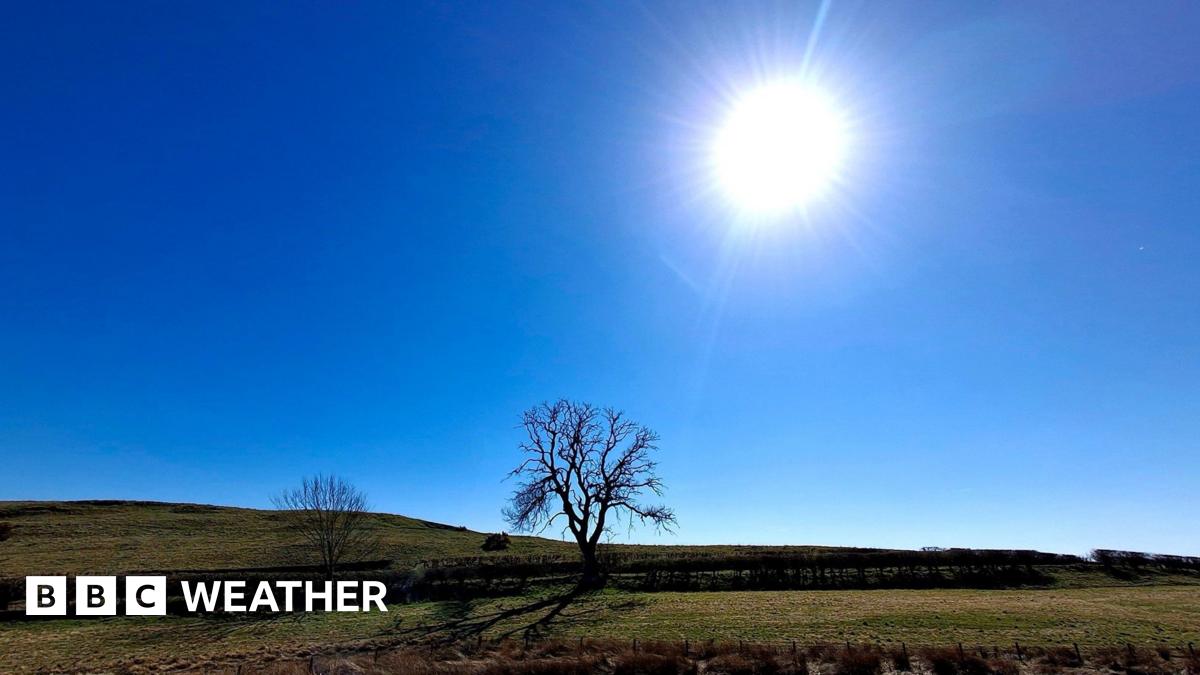Hungary is withdrawing from the International Criminal Court (ICC), its government has announced.
A senior official in Prime Minister Viktor Orban’s government confirmed this hours after Israel’s leader Benjamin Netanyahu, who is sought under an ICC arrest warrant, arrived in Hungary for a state visit.
Orban had invited Netanyahu as soon as the warrant was issued last November, saying the ruling would have “no effect” in his country.
In November, ICC judges said there were “reasonable grounds” that Netanyahu bore “criminal responsibility” for alleged war crimes and crimes against humanity during the war between Israel and Hamas. Netanyahu has condemned the ICC’s decision as “antisemitic”.
The ICC, a global court, has the authority to prosecute those accused of genocide, crimes against humanity and war crimes.
Hungary is a founding member of the ICC, which counts 125 member states, and will be the first European Union nation to pull out of it. A withdrawal has no impact on ongoing proceedings.
During a joint press conference, Orban asserted that the ICC had become a “political court”. He added the court’s decision to issue a warrant against the Israeli leader “clearly showed” this.
Netanyahu meanwhile hailed Hungary’s “bold and principled” decision to withdraw from the court.
“It’s important for all democracies. It’s important to stand up to this corrupt organisation,” Netanyahu said.
Earlier Israel’s Foreign Minister Gideon Sa’ar thanked Orban on X for his “clear and strong moral stance alongside Israel”.
“The so-called International Criminal Court lost its moral authority after trampling the fundamental principles of international law in its zest for harming Israel’s right to self-defence,” Sa’ar added.
Hungary’s decision aligns with its broader foreign policy stance under Orban, who has cultivated close ties with Israel and adopted a critical view of international institutions perceived as infringing on national sovereignty.
While Hungary’s withdrawal may carry symbolic weight and political implications, it does not significantly alter the ICC’s operational capacity or legal framework.
The court has faced similar challenges in the past and continues to function with broad international support.
But Hungary’s criticism of the ICC as “politically biased” and its decision to withdraw as Netanyahu visits may set a precedent for other nations to question or abandon their commitments to international justice based on political alliances or disagreements with specific rulings.
The US, Russia, China and North Korea are among the nations that are not part of the ICC, and therefore do not recognise its jurisdiction.
Israel is also not part of the treaty, but the ICC ruled in 2021 that it did have jurisdiction over the occupied West Bank, East Jerusalem and Gaza, because the UN’s Secretary General had accepted that Palestinians were a member.
Hungary now needs to send written notification to the UN Secretary General to leave the treaty, with the withdrawal taking effect one year later, according to article 127 of the Rome Statute, which established the ICC.
ICC spokesman Fad El-Abdullah told the BBC: “On the visit of Mr Netanyahu, the court has followed its standard procedures, after the issuance of an arrest warrant. The court recalls that Hungary remains under a duty to cooperate with the ICC.”
Since the warrant was issued, Hungarian authorities should technically arrest Netanyahu and hand him over to the court in the Hague, although member states do not always choose to enforce ICC warrants.
In Europe, some ICC member states said they would arrest the Israeli leader if he set foot in their country, while others, including Germany, announced that Netanyahu would not be detained if he visited.
But Germany’s Foreign Minister Annalena Baerbock said on Thursday Hungary’s announcement was “a bad day for international criminal law”.
“Europe has clear rules that apply to all EU member states, and that is the Rome Statute. I have made it clear time and again that no one in Europe is above the law and that applies to all areas of law,” she added.
On the other side of the Atlantic, the US has condemned the ICC’s decision to issue warrants for Netanyahu’s arrest and he has visited the country since it was issued in November. His visit to Hungary marks Netanyahu’s first trip to Europe since then.
Hungarian Defence Minister Kristof Szalay-Bobrovniczky, greeted Netanyahu on the tarmac of Budapest airport on Wednesday night, welcoming him to the country.
Israel is appealing against the arrest warrants for Netanyahu and former defence minister Yoav Gallant, and strongly rejects the accusations. It both denies the authority of the ICC and the legitimacy of the warrants.
Netanyahu said at the time that it was a “dark day in the history of humanity”, and that the ICC had become “the enemy of humanity”.
“It’s an antisemitic step that has one goal – to deter me, to deter us from having our natural right to defend ourselves against enemies who try to destroy us,” he said.
In the same ruling, ICC judges also issued a warrant against Hamas military commander Mohammed Deif, who Israel says is dead. Hamas also rejected the allegations.
The visit comes as Israel announced it was expanding its Gaza offensive and establishing a new military corridor to put pressure on Hamas, as deadly Israeli strikes continued across the Palestinian territory.
The war in Gaza was triggered by the Hamas-led attacks on southern Israel on 7 October 2023, which killed some 1,200 people and led to 251 hostages being taken to Gaza. Since then, Israeli military attacks have killed more than 50,000 Palestinians have been killed, health authorities in Hamas-run Gaza say.
